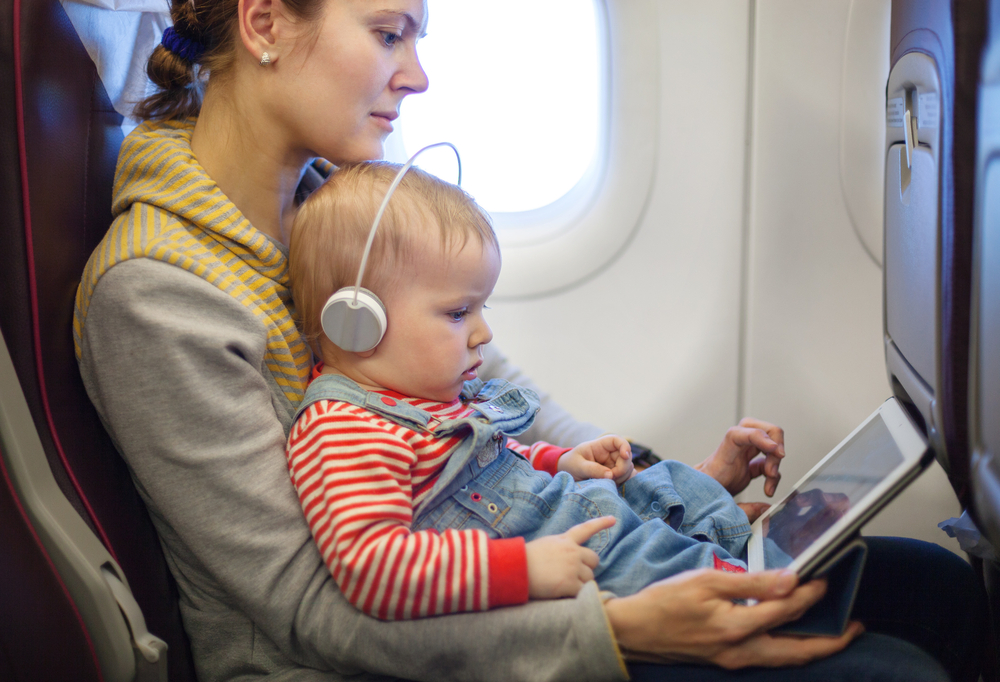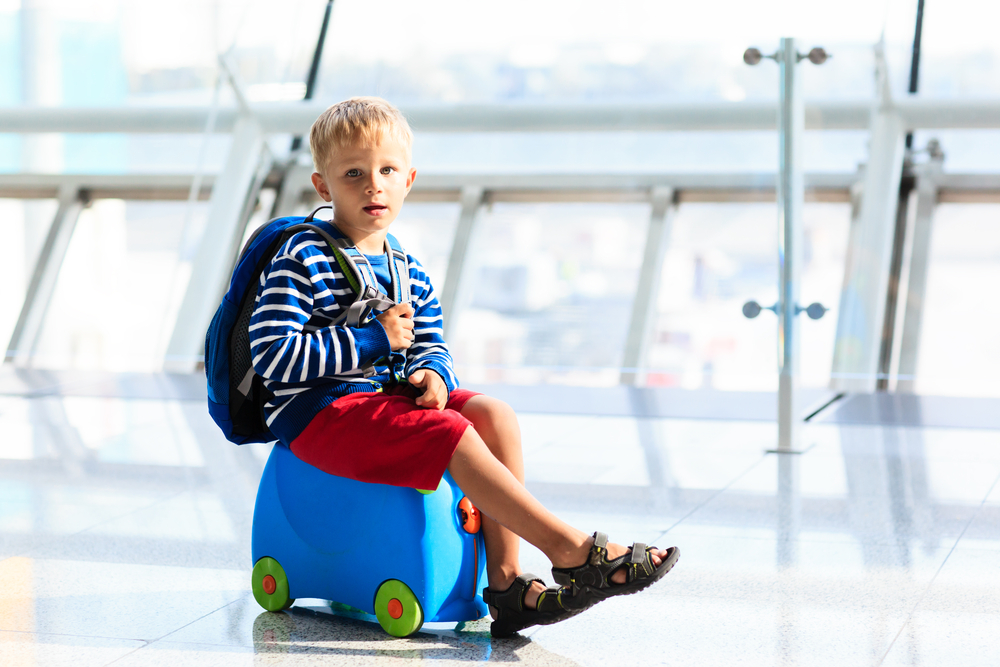Eight tips for travelling with children
Going on holiday with children – big or small – can be stressful; a 2018 survey found that 31% of those interviewed felt that children were the most stressful travelling companions. Travelling with little ones for the first time can certainly seem daunting (even Mary Poppins would struggle to pack all their belongings) whilst travelling with teenagers can bring a whole other array of challenges (book somewhere with WiFi). But family holidays are definitely worth the logistical challenges they bring, so we’ve compiled a list of tips to help those travelling with children – whether you’re road-tripping or heading long-haul, these tips should help reduce the inevitable stress involved.
Involve them when planning
Involve your children in the holiday planning process, particularly if they are older. Get their input on where they would like to travel to or what activities they would like to enjoy during their stay. This will help ensure their heads aren’t buried in their tablet when you’re away and will actively engage them in what you have planned.
Keep them entertained when travelling

Another 2018 survey revealed that travelling was the most stressful part of a holiday; over a quarter of respondents (28%) cited the journey as the largest cause of stress during any trip and there is no doubt that this stress is usually highest when children are youngest.
At the airport, make a beeline for the children’s play area so that they can burn off plenty of energy before your flight. Take a good variety of activities – sticker books, colouring pads and puzzle books – to keep them amused either on the plane or in the car. Don’t apologise for making the most of technology either. Pre-load your device with plenty of games and apps and download their favourite TV programmes or films to watch. Making sure you have plenty of healthy snacks will also help keep them distracted and avoid any hangry moments.
Only take the essentials

We’ve been there. It can be tempting to over-pack. Families seem to have a tendency to pack everything the children use at home but this rarely ends well. It’s inevitable that children will get tired. And then, you’ll suddenly find that as well as carrying your own bags, at the very least you’ll also be carrying their case too, and at worst, you’ll also be carrying them!
You simply don’t need everything you use at home. Travelling will cause havoc with all the normal family routines anyway so no need to take all the paraphernalia to keep these in place. Besides, you’ll likely be able to buy any must-haves whilst there. That said, it is vital that you do take essential equipment with you – like a car seat or buggy. If there is something you really couldn’t be without, then better to be safe than sorry.
Write a journal
Whilst children will eventually outgrow this activity, the longer you can encourage them to keep a diary on holiday, the better. Buy a scrapbook and get them to choose postcards, draw pictures and write something about their day. It can provide a lovely activity to enjoy together and it’s an opportunity to enjoy some ‘quiet’ time after a busy day out and about. And there is nothing better than having this written record in years to come. You will all get so much enjoyment from looking back at old scrapbooks and reminiscing about the time you spent together.
Tailor activities to everyone
We find that the best days on holiday are those which offer something for all the family to enjoy. If you have a burning desire to spend the morning in a museum to gaze at works by your favourite artist but know that this won’t go down well with your ten year old, then make sure you have something planned specifically for them in the afternoon. Then at the end of the day, you will all have experienced an activity you have really enjoyed. And remember… Just because you’re on holiday, you don’t have to live in each other’s pockets. We’ve had a great time in the past when a couple of family members have enjoyed one particular activity whilst others have headed out to try something else, meeting up later over lunch to swap stories. Everyone’s different, and it makes sense to capitalise on it – especially on holiday!
Accept things may go wrong
With the best will in the world, things can go wrong on any trip. Maybe your teenager left his phone on public transport or maybe the theme park you wanted to visit was closed on the day you had planned to visit. These things are unavoidable and outside your control. Once they have happened, just accept that they have happened and move on to enjoy the rest of your trip; you don’t throw away the whole box of eggs just because on cracked in transit.
Pack a first aid kit
One of the quickest ways to ruin a holiday is to have a family member fall ill. If someone is sick, you want to know that you can help treat the problem as quickly as possible. Always take a first aid kit and a good selection of over-the-counter medicines with you. Focus on having something to help battle headaches, allergies, upset stomachs and motion sickness so that the most common complaints can be dealt with without a trip to the chemist or doctor.
Choose your accommodation carefully
Think about what sort of accommodation will suit you best. This may vary dependent on the age of your children and the stage they are at. If you have really little ones, a hotel might give you adequate space whilst ensuring you get a chance to put your feet up and let someone else do the cooking and make the beds. By the time you have teens in tow, you may find you actually prefer a self-catering villa which will give you more space to relax without getting in each other’s way. Maybe you want the reassurance of knowing what you’ll spend when you’re away by going all-inclusive or maybe you’d like to opt for an apartment where you can prepare your own meals to help out a family member with special dietary requirements. Whatever the stage you’re at, just think about what sort of accommodation will be most relaxing for you and your family.


